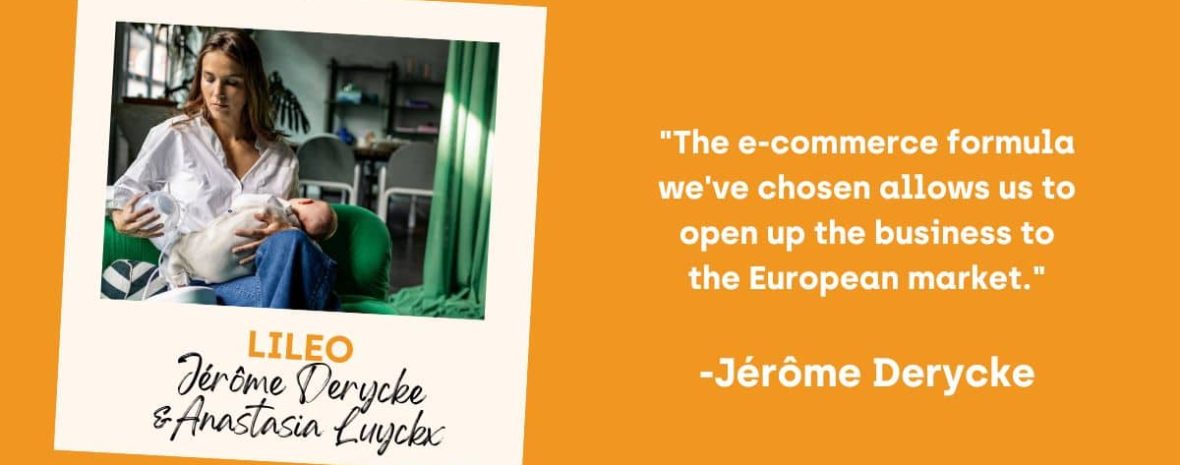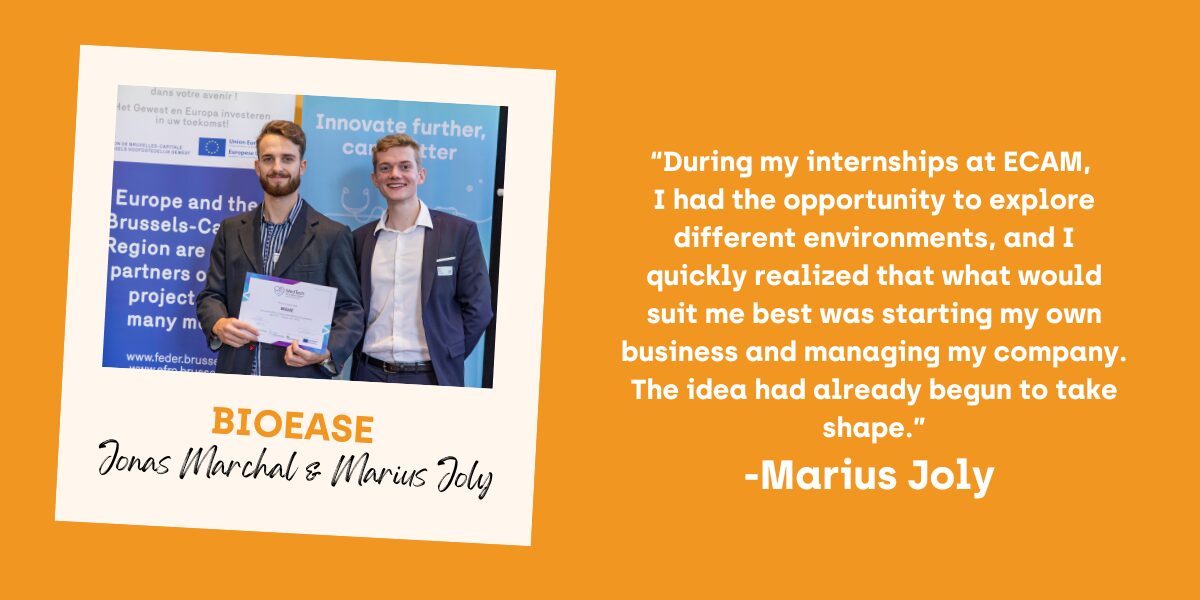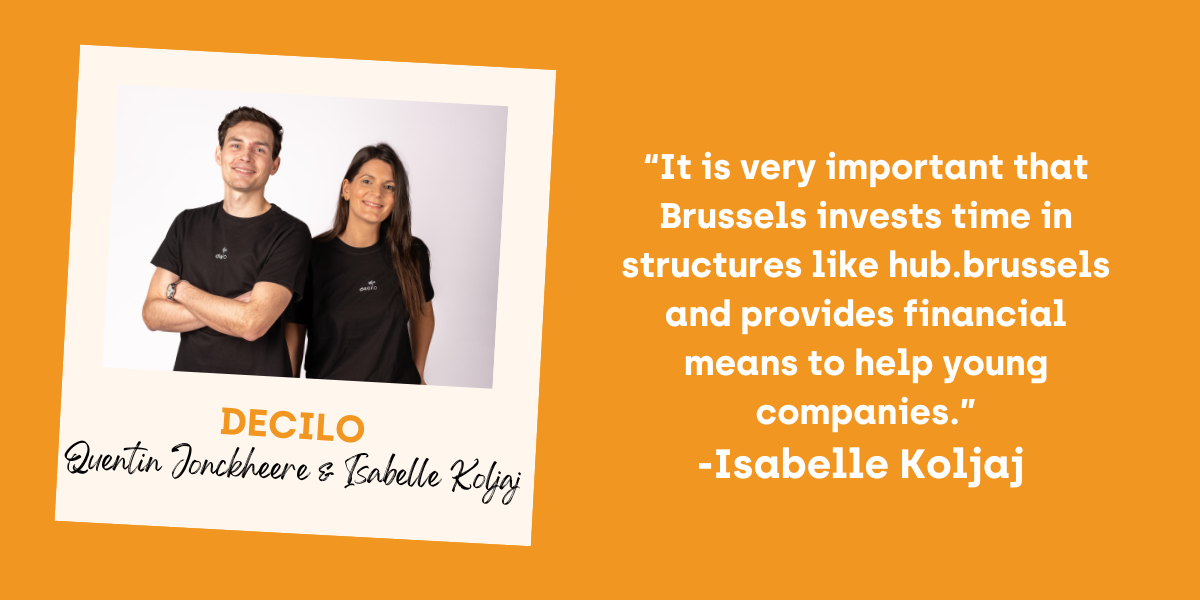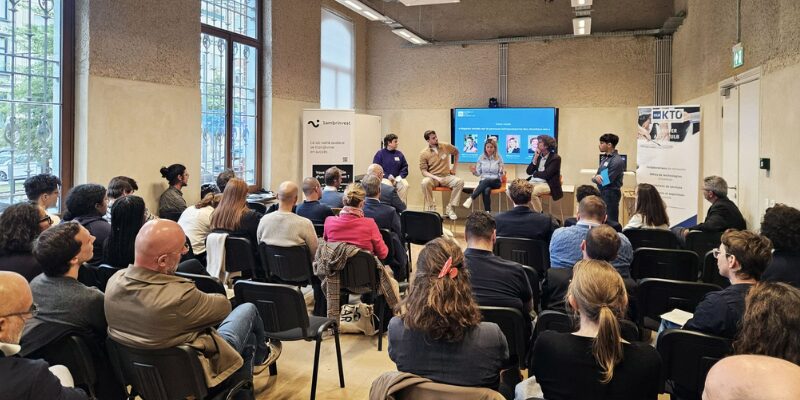Thanks to Lileo, there’s a revolution underway for young mothers faced with the challenges of breastfeeding. Because Lileo is much more than an innovative breast pump. It offers truly personalised support to its users through an interactive app. The whole system was designed by Jérôme Derycke, a young father from Brussels mindful of his wife’s comfort.
The adventure started during the Covid-19 pandemic, shortly after the birth of a little bundle of joy, whose mother then had to express her milk. “To do this, I saw my wife having to use a truly infuriating machine every day,” Lileo’s founder remembers. “She tried over fifteen types!” There were so many drawbacks – being uncomfortable and inconvenient to carry around – leaving young, inexperienced mothers helpless in the face of this onerous task.
Listening to mothers
As an attentive father and husband, Jérôme Derycke decided to tackle this problem head on, although it would take him a long way from the investment fund he was working for. He convinced Anastasia Luyckx, sociologist and anthropologist by training, to join him. Together, they embarked on the research phase. They met and interviewed several dozen women. Over the course of these long interviews, the mothers confided their challenges and concerns around breastfeeding and using breast pumps.
Then it was time to create the first prototypes. “Anastasia and I started by playing around with plastic and sticky tape to test out our initial hypotheses,” Jérôme Derycke smiles. “But we quickly turned to engineering firms who really helped us with the electronics and design for the product.”
Technology and support
It wasn’t just about developing a breast pump using patented technology, combining comfort, security, discretion and portability. The true innovation in the Lileo system can be found in the support offered to mothers. Anastasia Luyckx remembers, “We realised that young mothers have a great deal of questions about various aspects of breastfeeding. So, we wanted to support them throughout this whole period. That’s why we opted for a rental system: mothers that need a breast pump can order one online, have the cup that fits into their bra and the pump delivered to her home, use them, and then send them back to us when she no longer needs them. During this period, our app provides technical support to these mothers, allowing them to ask questions via a chat, or even chat directly with a lactation consultant. The idea is to allow mothers to prolong their breastfeeding experience as long as they wish, even in environments that are, in theory, unsuitable.“
Aiming to create a medical device
Of course, it would be impossible to develop such a device without consulting professionals in the sector. Anastasia Luyckx met with around fifty midwives and the duo surveyed hospitals, pharmacies and even health insurance companies “with the aim of understanding the problems identified by health specialists around breastfeeding and using a breast pump,” explains Jérôme Derycke.
The reception proved unanimously positive. Some testers were even referred to Lileo by their midwife. This was a real vote of confidence for the tool. However, as it wasn’t marked as a medical device, it could not be offered in maternity wards. Opening up this valuable pathway was obviously one of the priorities for the duo, who had recently become a trio thanks to the arrival of Mattias Masschelein, an engineer with key skills for Lileo’s development. “This recognition clearly broadened our core addressable market and would enable the development of additional applications,” Jérôme Derycke observes. “But it’s a long and complex process. We may need to adapt our product to meet certain standards.“
The Brussels cocoon
To complete these procedures successfully, the business obviously welcomed any type of assistance. And Lileo was in no shortage of assistance. “We are very happy with the support that we’ve been able to benefit from in Brussels to date,” Anastasia Luyckx is proud to say. “Thanks to the lifetech cluster, we were able to integrate the Medtech Accelerator which immersed us quickly and efficiently into the health ecosystem and provided us with valuable assistance in structuring our development. What’s better than being able to meet the representatives of ten hospitals and equally as many potential investors in just one day?” And that wasn’t all. Anastasia Luyckx highlighted the consultancy support they received both on issues specific to the health sector and on topics related to business management. She detailed the numerous hub.brussels services that Lileo made use of in terms of exports, business, sustainability and networking. She also referred to the circlemade cluster, which helped Lileo to grow its professional network, and mentioned the training available and the trips taken to attend trade fairs in Barcelona and Helsinki.
At the heart of femtech
Suffice it to say that the Lileo team have put in all the work to ensure that the commercial launch, planned for the end of 2024, is a success. “Initially, we will be concentrating our efforts in Belgium. But the e-commerce formula we’ve chosen allows us to open up the business to the European market,” explains Jérôme Derycke. While Anastasia Luyckx adds, “We are part of the femtech sector, the technology working to benefit women’s health. We’re feeling a sense of momentum within the sector, a growth, investments, and a recognition of the lack of consideration to date for women’s health by investors and innovations. We intend to continue developing Lileo in Brussels, remaining focused on maternity issues.“




